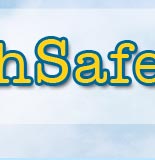 |
 |
 |
 |
 |
 |
|||||||||
Classroom Behavior Management INTRODUCTION How do the most effective teachers…
The establishment and maintenance of safe and supportive classrooms that contribute to high quality student achievement are critical skills that are rarely taught at the university. Consequently, those skills must be crafted and honed “on the job.” Each school and each classroom presents its own unique challenges, and because every year brings a new group of students, teachers must become lifelong learners. The foundation of this learning lies in just a few research-supported principles and actions, TeachSafeSchools.com and the Melissa Institute for Violence Prevention and Treatment have condensed the information for ready consumption. Everything starts with TEACH: T.E.A.C.H. T – Tailor for diversity. Make it a point to know as much as possible about your students, including their diverse cultural, ethnic, behavioral, and learning characteristics, along with stressors they may experience outside of school. E – Encourage positive behavior. Aim for a 4:1 ratio of positive comments to negative corrections for all the students. A – Arrange the environment for success. Teach your behavioral expectations directly and immediately through collaboratively-established classroom rules and well designed classroom routines. C – Consult your peers. Seek collaboration with experienced teachers and specialists before difficult problems start to become entrenched. H – Hug yourself. Prevent stress and burnout by focusing each day on what you are accomplishing and not just on what is frustrating.
To help you implement the TEACH guideline, we have put together the next section that elaborates, clarifies, and expands on these five essential principles. We have divided them into three segments:
Cited Classroom Management Links Center for Effective Collaboration and Practice (CECP) Dr. Mac’s Amazing Behavior Management Advice Site Intervention Central Northwest Regional Educational Laboratory (NWREL) Positive Behavioral Interventions and Supports (PBIS) The Responsive Classroom Training and Technical Assistance Center at the College of William and Mary |

This web site has been produced by The Melissa Institute for Violence Prevention and Treatment to provide research-based school violence prevention procedures for educators. The web site has been made possible with the generous support of the Robert and Renee Belfer Foundation and other supporters. |
 |
The Melissa Institute for Violence Prevention and Treatment to provide research-based school violence prevention procedures for educators Terms and Conditions |
|